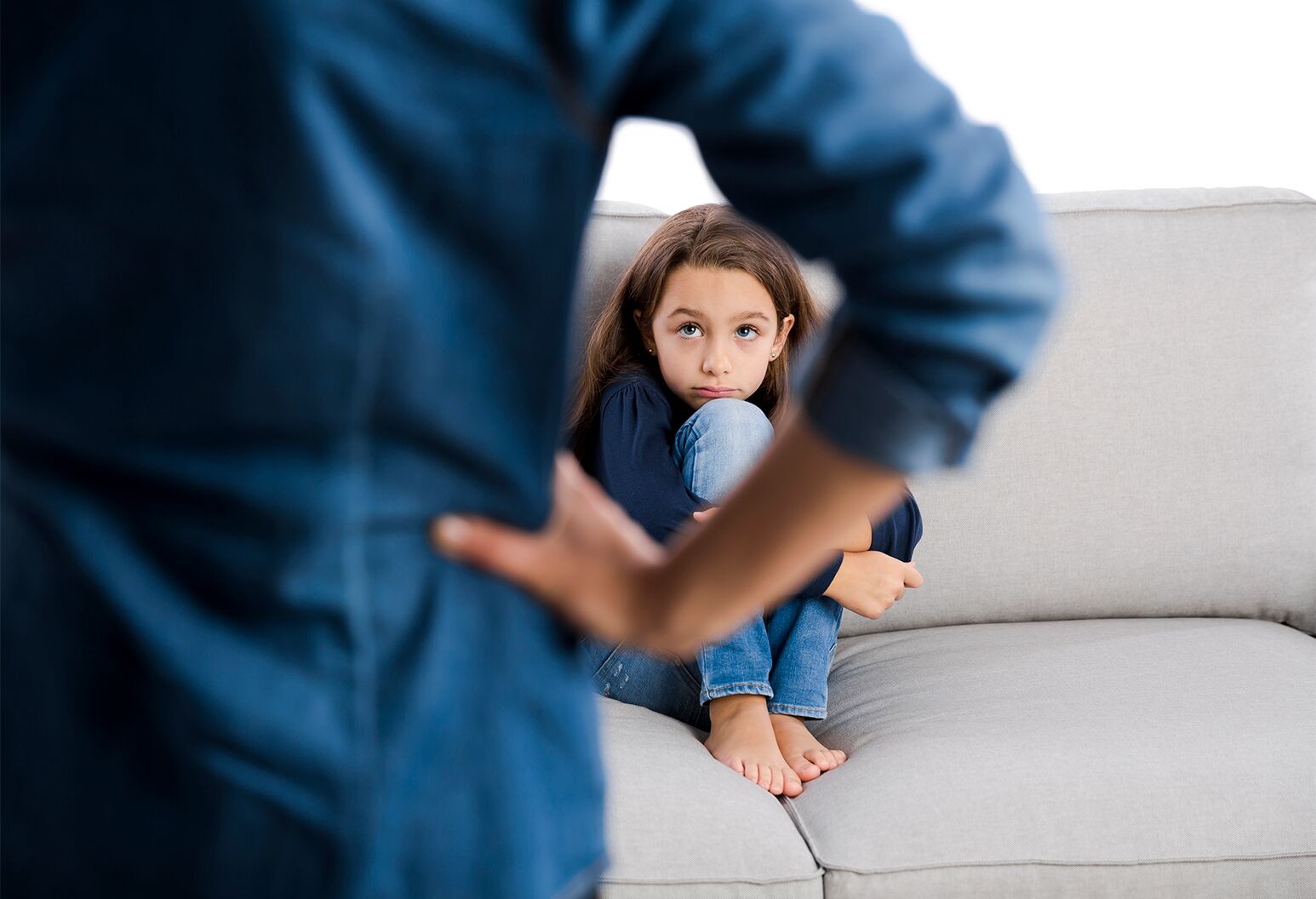parenting
My Ex Doesn't Want To Co-Parent

Whether your anger is directed at your kids or not, they could be picking up some of your habits. Here, a psychologist reveals the right way to turn a blowup into a teachable moment.
4 min read
Have you ever just completely lost it with your kids only to have a wave of parenting grief immediately wash over you? Yeah, me too. And then you start to compare yourself to that neighbor down the block—you know, the one who seems to exercise endless patience around his kids? You bet he never loses his cool like you do, right? Wrong.
The reality is that everyone loses their cool around their kids at one point or another.
Parenting is challenging, and the job tests the temper of even the most patient among us. No judgment, no shame—it just happens. But with some advanced planning and coping strategies, these outbursts can actually provide powerful opportunities for kids and parents alike. Here, Northwell Health psychologist Laura Braider, PhD, offers guidance that can help turn a blowup into a teachable moment.
First, Braider says, it helps to acknowledge that we're all human, and losing our cool is hard-wired into our DNA. Anger triggers our fight-or-flight reflex, which can cause us to sweat, tense our muscles, and quicken our breath. "That's our neurotransmitters becoming overactive and flooding our bodies," she explains. "When we have children, there are things that they will do that will make us angry in front of them, period. So let's normalize anger as an emotion that we all encounter."
Braider recommends acknowledging our triggers—including situations that make us more susceptible to losing our temper. For her, that meant coming home to a messy house when her kids were younger. Identifying this as a trigger helped her "cope ahead," as she calls it.
"Think about the things that set you off, maybe it's a bad night's sleep, or you're not feeling well," she says. "In those situations, you know you're not going to handle anger as well. Start by identifying those triggers when they happen and being especially mindful of responses around kids." Planning ahead in this way can help you avoid blowing up.
Parenting is tough, don't go it alone. Sign up for The Well's newsletter today.
By providing your email address, you agree to receive email communication from The Well.
Blowups will happen. And when we do get angry in front of our kids we should acknowledge what happened and try to correct it after we’ve had a moment to calm down. For instance, Braider suggests, you might explain, "I didn't handle that well. It may take me a moment to come up with a better way to explain how I feel."
Then, step away for a moment. "Sometimes, I'll just take a breath outside,” admits Braider. “But, whatever you do, take some time to reset. Tell your child you were not happy and need a few minutes to regroup.” Stepping away helps break the cycle of looping thoughts and feelings that can cause many to catastrophize, overgeneralize, and generally make you feel angrier.
Most situations aren't urgent, Braider says: That is, you can teach that lesson when you are better prepared emotionally. Further, this moment of pause may even be a powerful tool that encourages kids to reset negative behaviors, too. “That moment of uncertainty while a parent regroups can be way more effective than yelling," she says.
You don’t have to wait until you want to yell at your kids to model behavior worthy of emulation. A bit of road rage is a perfect example. Imagine you call the other driver an idiot (or worse) with your kids in the car. “When the anger passes, ask out loud, ‘Was he really an idiot, or was he just distracted? Did he get really bad news? Maybe his wife is very sick. Maybe he had no sleep because a baby kept him up,’” Braider suggests. This exercise not only helps humanize the parent, but it teaches compassion too.
"When you make a mistake, and you correct yourself, it's the best way to teach your kids how to deal with anxiety," Braider says. "We're accepting that we're fallible. We're showing them it's OK to make mistakes and strive to do better."
Remember that some parental rage is inevitable, and it's OK. But if you're constantly feeling like you can’t control angers, it might be time to talk to a professional. “There's absolutely no shame in talking to a pro who can help you build out your toolbox for handling challenging emotions,” says Braider.
The Well is Northwell Health’s commitment to the future of health care. In this time of information overabundance, much of which is inaccurate, unhelpful, or even difficult to understand, Northwell Health is on a mission to make a difference as an honest, trusted, and caring partner. The site connects with consumers to provide them with personalized content that reduces their stress, makes them laugh, and ultimately feel more confident and capable on their healthcare journey.